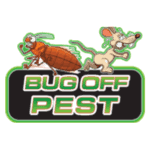Choose certified Pest Control in Port Charlotte for a healthy home.
Choose certified Pest Control in Port Charlotte for a healthy home.
Blog Article
Discovering Cutting-edge Methods and Products for Reliable Insect Control
The landscape of pest control is progressing, noted by the introduction of cutting-edge techniques and items made to improve performance and sustainability. From clever traps equipped with innovative surveillance systems to organic methods that employ natural killers, these improvements provide a paradigm change in just how we come close to pest monitoring. Environment-friendly chemical alternatives and pheromone interruption strategies supply targeted services that straighten with environmental stewardship. As the sector grapples with these developments, a closer assessment reveals not only their ramifications however also the possible difficulties that may develop in their implementation.
Smart Traps and Checking Equipments
How can modern-day technology improve parasite administration? One substantial improvement is the advancement of wise catches and monitoring systems, which give real-time data and analytics for efficient parasite control. These systems use sensing units and wireless technology to detect bug activity, notifying property supervisors and insect control specialists to problems prior to they intensify.
Smart traps are equipped with features such as lure stations that attract bugs and capture them successfully. These traps can be monitored from another location, permitting prompt interventions and lessening the need for extensive chemical applications. The assimilation of device understanding formulas allows these systems to separate in between target insects and non-target types, boosting the accuracy of pest control actions.
In addition, the data gathered from wise traps can be examined to identify patterns in parasite behavior and environmental factors adding to problems (Pest Control in Port Charlotte). This information is important for creating targeted parasite monitoring techniques tailored to details environments. By welcoming clever catches and checking systems, insect control experts can improve their operational performance and lower the eco-friendly impact of parasite management, ultimately bring about safer and a lot more sustainable methods in the industry
Biological Pest Control Approaches
Making use of natural predators and bloodsuckers, organic insect control techniques use an ecologically pleasant option to chemical treatments. This approach includes the introduction or improvement of certain organisms that can normally regulate insect populations, consequently lowering reliance on artificial pesticides. Usual instances consist of using ladybugs to control aphid problems and parasitic wasps to target caterpillars.

Biological control can be classified into 3 primary approaches: classic, augmentative, and conservation. Classical biological control entails importing natural adversaries from the pest's native habitat, while augmentative control entails boosting the population of existing natural opponents through releases. Preservation techniques concentrate on producing problems that support these valuable organisms in the environment.
It frequently needs a detailed evaluation of bug dynamics and the life cycles of both the bugs and their all-natural adversaries. As recognition of ecological concerns grows, biological parasite control approaches are significantly identified for their lasting function in integrated pest management programs.
Eco-Friendly Chemical Alternatives
Environment-friendly chemical options supply a sensible service for insect management that minimizes ecological influence while properly regulating parasite populations. These choices are originated from natural sources and are carefully created to target specific bugs without harming valuable microorganisms, making them a crucial component of lasting insect control approaches.
Amongst one of the most efficient eco-friendly choices are plant-based pesticides, such as neem oil and pyrethrin, which are originated from the seeds and flowers of various plants. These materials disrupt the life process of bugs, decreasing their populations without the toxic results connected with standard chemicals - Pest Control in Port Charlotte. Additionally, vital oils like pepper mint and clove oil show repellent homes, additionally boosting their energy in pest management

Furthermore, green chemical alternatives often break down faster in the environment, decreasing the danger of dirt and water contamination. This characteristic aligns with the enhancing consumer demand for lasting techniques in agriculture and metropolitan bug his comment is here control. As research remains to development, the growth of cutting-edge environmentally friendly formulas will better boost efficacy and widen application areas, allowing pest management professionals to embrace greener, much more accountable approaches in their techniques while safeguarding human health and the environment.
Pheromone Interruption Methods
Another ingenious strategy in sustainable insect monitoring is using scent disruption strategies. These methods exploit the natural chemical signals, or pheromones, that insects use for communication, particularly in breeding actions. By interfering with these signals, find more bug populaces can be effectively taken care of without considering unsafe chemicals.
Scent traps are commonly used in this technique. Over time, this can lead to a significant decrease in bug populations.

Integrated Bug Administration Approaches
Effective bug control typically needs a detailed strategy, and Integrated Pest Administration (IPM) methods supply a structure for attaining this goal. IPM incorporates different administration methods to decrease insect populations while lowering dependence on chemical pesticides. This diverse method begins with complete surveillance and recognition of pests, permitting targeted interventions based upon certain parasite stress.
Social techniques, such as plant rotation and hygiene, play an essential role in avoiding bug facility. Biological controls, including natural predators and parasitoids, are employed to maintain pest populations at manageable levels. When necessary, selective chemical therapies are used, stressing reduced toxicity to non-target species and the environment.
By using this holistic approach, IPM not just enhances parasite control effectiveness but additionally contributes to lasting environmental balance. Inevitably, Integrated Insect Monitoring stands for a forward-thinking remedy that aligns farming productivity with ecological stewardship, making it essential in contemporary pest control techniques.

Verdict
In conclusion, the assimilation of ingenious strategies and items for effective parasite control stands for a substantial development in lasting pest administration. Smart catches and keeping an eye on systems, organic parasite control techniques, eco-friendly chemical options, and scent disruption methods jointly boost the effectiveness of bug monitoring techniques. By taking on these approaches, the reliance on traditional chemicals can be minimized, advertising environmental health while making sure reliable pest control. Continued r & d in these locations will certainly better improve pest monitoring check techniques.
Report this page